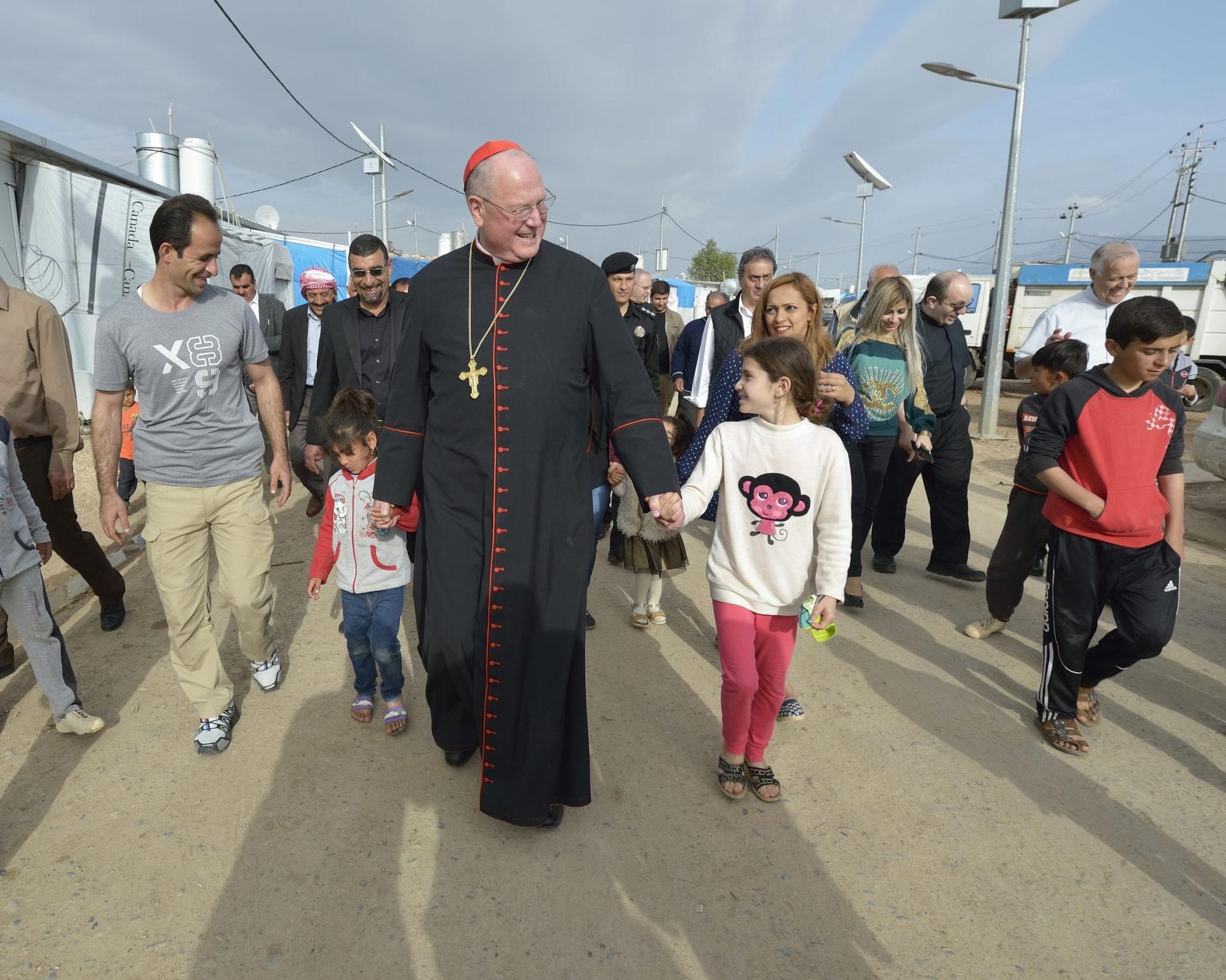NEW YORK — The persecution of Christians around the world has become a “kitchen table topic” for Catholics, according to Cardinal Timothy Dolan of New York. While Dolan acknowledged that Christians were slow “to answer the alarm clock,” he offered high praise for the current level of engagement of U.S. Christians in responding to the needs of Christians overseas, particularly in the Middle East.
“We’ve heightened the conversation. People know what’s going on. As far as consciousness raising, as far as speaking about it, it’s going on big time,” he said.
Dolan’s remarks came at the conclusion of a daylong summit on “The Crisis for Christians in the Middle East,” sponsored by the Anglosphere Society in New York on Tuesday.
According to the United States Department of State, Christians in more than 60 countries face persecution from their government or surrounding groups. In Iraq, over one million Christians have been killed for their faith over the past decade, and by some estimates — if the current trends are not reversed — there could be no Christians left in the country in five years.
“I doubt if there would be a Catholic parish in the United States where prayers for the persecuted Christians throughout the world would not be a staple in Sunday Mass. It has become a constant in our prayer. And that’s nothing to dismiss,” Dolan added.
In conversation with Ambassador Ronald Lauder, president of the World Jewish Congress (WJC), Dolan also said that Christians have much to learn from the Jewish people when it comes to persecution.
Lauder said that several years ago he approached Dolan with the idea of creating an equivalent to the WJC for Christians around the world. The WJC is a non-partisan advocacy group for Jewish people that is present in over 100 countries.
“He didn’t come to talk to me,” Dolan clarified. “He came to yell at me — in a very reverent way — and say ‘you Christians gotta get your act together. Take it from us, we learned the hard way.’”
Dolan said that Christians could learn better advocacy tactics from the Jewish people. “They have a lot more dare than we do,” he said.
Both Dolan and Lauder praised the faithfulness of the persecuted Christians in the Middle East, saying that in many respects, they place a higher value on the role of religion in their society.
Dolan offered a call for action for western Christians to take the signs and symbols of the faith more seriously.
“If you don’t take a statue of the blessed mother or a cross on top of a church seriously, you’re not going to stand up when the Chinese come in and make the Christians remove all the crosses or when ISIS goes into the village and beheads not only people but statues and blows up churches, because you thought, well those are nice,” he said. “But is it really worth losing your life over? Yes, it is. ISIS believes it is and so do we need to believe it is.”
Dolan said that unlike western Christians, persecuted believers know the value of these symbols.
“They will die for them,” he said. “They will continue to go to Mass on Sunday, even though they know there’s a chance they won’t return because they’ll either be burned alive at the church or they’ll be shot or their wives will be raped. They will continue to go.”
RELATED: Iraqi Christians tell UN Christian presence is key to regional stability
Earlier in the day, former congressman Frank Wolf, who was a critical player in pushing the U.S. State Department to recognize the situation of Christians in Iraq as genocide, also pleaded with the audience to stand in greater solidarity with Middle Eastern Christians.
“The persecuted Church can seem distant from our pews and our sanctuaries in the west, but these brothers and sisters in the faith yearn for our prayers. They cry out for our attention,” said Wolf. “The Church in the west should always speak out against oppression of people of all religions, whenever and wherever it is taking place.”
Andrew Walther, vice president for communications and strategic planning at the Knights of Columbus, said that American Christians would do well to recognize the faith of Middle Eastern Christians is “not a branch of Christianity, but the root of Christianity.”
(The Knights of Columbus are a principal sponsor of Crux.)
According to Walther, the situation of Christians in Iraq is at a crossroads, which could either lead to stabilization or the end of Christianity in the region. While Christians once totaled approximately 1.5 million individuals in Iraq, it is now estimated between 250,000 to 300,000.
Carl Anderson, Supreme Knight of the Knights of Columbus, also urged for an “ecumenism of conscience,” and said it was incumbent for Christians, Jews, and all people of goodwill to stand together and reject the violence against Christians in the Middle East.
“Give these people a voice,” Anderson urged. “Let Americans see the face of Middle Eastern Christians.”















